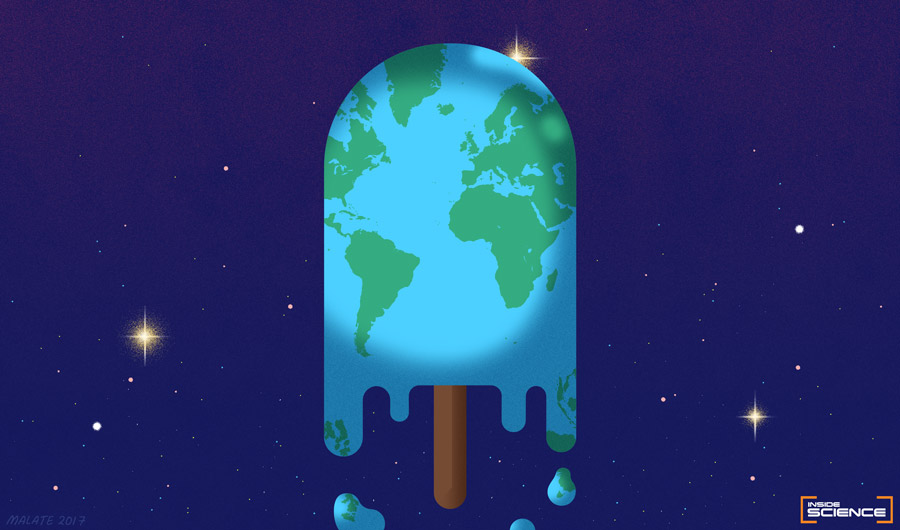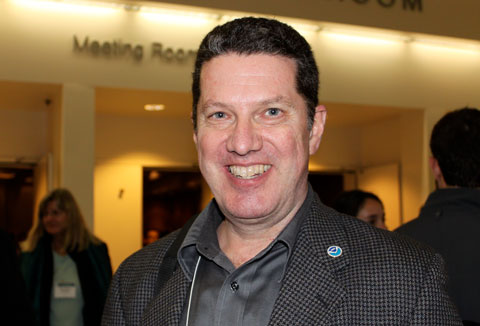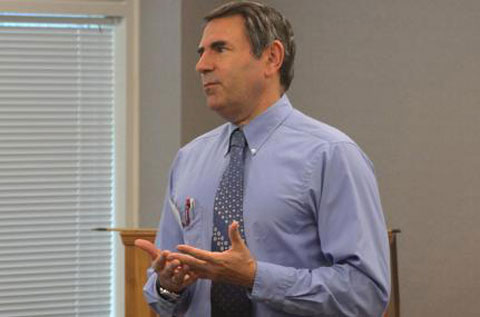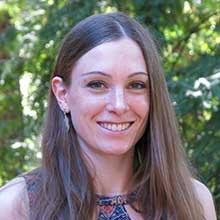Retired NOAA Scientist Doubles Down on Climate Data Controversy

Above image: Abigail Malate, Staff Illustrator
Copyright American Institute of Physics (reprinting information)
(Inside Science) -- Last weekend, John Bates, a climate scientist who recently retired from the National Oceanic and Atmospheric Administration, accused his former colleagues of "flagrant manipulation of scientific integrity guidelines." In a blog post that seemed to confirm climate skeptics' darkest suspicions of climate scientists, he claimed that the lead author of an important 2015 climate study had rushed publication and mismanaged data, all in an effort to exaggerate recent warming trends and influence the fall 2015 Paris climate talks. The accusations spurred outrage from politicians already suspicious of the study, as well as from a British tabloid called The Daily Mail, which announced that world leaders had been "duped" into spending billions to curb fossil fuel emissions.
However, conversations with numerous climate scientists and Bates himself have revealed a more tangled picture of the disagreement. Bates told Inside Science that he believes in human-caused climate change, yet he said he stands by the content of the Daily Mail article.
Independent scientists and the accused researchers contest Bates' allegations, and in some cases appear to find them incomprehensible. Their comments raise questions about how, if at all, a dispute over one paper should influence the overall understanding of what humans are doing to the climate.
Blog post blowback
Other scientists were quick to refute Bates' claims and defend the "Karl study," which is named for its lead author, Thomas Karl, the former director of NOAA's National Centers for Environmental Information. On blog posts and social media, researchers praised the Karl study's scientific rigor and pointed out that its findings have been replicated in other studies by independent researchers. A statement by Jeremy Berg, editor-in-chief of Science, defended the journal's decision to publish the study, noting that it had gone through a particularly rigorous peer review. And even John Fyfe, lead author of a study Bates cited as being critical of the Karl study, had only good things to say about it.
"I thought it was an excellent contribution," said Fyfe, who works as a senior scientist at Environment and Climate Change Canada in Victoria, British Columbia. "When we first saw the paper, we asked the lead author to send us the data, which he did. And it was fully accounted for."
So why did Bates accuse the researchers of wrongdoing?
"It's not deep fraud or anything," said Bates. "It's more a series of biases that seem to lead in one direction."
Researchers on Karl's team say they have struggled to understand what he's talking about.
Harsh accusations
Even if the details of Bates' complaints were true, they wouldn't support his more inflammatory accusations, according to Karl. For example, Bates claimed that Karl constantly had his "thumb on the scale" in an effort to increase the apparent rate of warming in recent years. But his specific accusations mostly deal with whether the researchers followed data processing and archiving procedures that Bates helped develop. These procedures wouldn't have changed the findings of the study at all, according to Karl. Zeke Hausfather, a climate scientist at Berkeley Earth in California, agrees.
"Nothing in Bates' post provides any evidence that Karl et al. manipulated the data or specifically tried to show more warming," Hausfather told Inside Science in an email. Hausfather wasn't involved in the Karl study, but he replicated its key findings in a study published in Science Advances. When he saw Bates' accusations, he published a blow-by-blow rebuttal on the blog CarbonBrief.
Bates also accused Karl of rushing publication for political purposes, timing it to influence the Paris climate talks. Karl and his colleagues deny that their research was rushed, and say there was never any discussion of getting it out before the climate summit in Paris. And despite his accusation, Bates told Inside Science that he doesn't remember any such conversations, either. He confirmed that the political motivation was a guess, based only on the pace of the research and the date when it came out.
What the claims boil down to
Karl and his colleagues are equally perplexed by Bates' explanations of exactly what they did wrong. Much of Bates' concern seems to be whether the researchers used a data archiving process called Climate Data Records, which Bates helped develop. According to Karl, this process was meant to be the "gold standard" for managing operational datasets -- huge troves of data that are continually updated with new measurements from satellites, land stations, ocean buoys and other sources. The full CDR process is costly and time-consuming, and involves having engineers rewrite the software that turns measurements into useful metrics like monthly temperature averages, said Karl. But in theory, this effort pays off with more reliable databases that are easy for a wide range of people to use.
In practice, scientists have mixed views on whether the CDR standard and similar processes are worth the trouble. Karl said he was enthusiastic about it at first, even convincing Congress to allocate money for it. But the money soon ran out, and it has proven harder than expected to update the databases when scientists develop better ways to calculate climate metrics from raw measurements.
Climate scientists at other institutions don't necessarily embrace the CDR approach, either. Hausfather said that neither his institution at Berkeley Earth nor the Hadley Center in the United Kingdom uses the highly engineered CDR data format. And Peter Thorne, a climate scientist at Maynooth University in Ireland who wrote a blog post contesting Bates' claims and used to work with the NOAA researchers, warns against equating engineering maturity with data quality.
"You can have the best engineered climate data record in the world, and it can be flat out scientifically wrong," he said. "And you can have a dataset, the process engineering of which is ropey as hell, that scientifically is closer to the truth."
One of Bates' main criticisms of the Karl study was that it used land temperature data that had not gone through a CDR-like process. The researchers could have used an older, fully processed version of the dataset, but that would have meant throwing out most of their land data. Alternatively, they could have waited for the dataset to be formally updated. NOAA is working on the update, said Karl, but as of February 2017, it's still not ready.
The researchers aren't sure why Bates objects to their use of land data that hasn't gone through the CDR process. Thomas Peterson -- another former NOAA scientist, and one of the authors of the Karl study -- interpreted Bates' blog post to mean that researchers must apply the CDR process or similar processes to all data before they can publish scientific papers about it. "I think that is what John is saying. But I can't be completely sure," he wrote in an email.
Karl declined to speculate.
"What I have a hard time telling is what's in John Bates' mind, and what does he think -- what does he think the NOAA procedures were?" said Karl.
Bates shed some light on the issue in an interview with Inside Science. He agreed with Karl and Peterson that not all NOAA climate studies have to use CDR data, but said that Karl's team ignored procedures that had been established for this particular dataset.
"At that point, we were doing everything that way," he said. "But all of a sudden, there was this exception."
Bates had a chance to raise concerns before the study was published, since he arranged the internal review, said Karl. That much is true, said Bates -- he signed off on the study, but he didn't learn about the problems until after it was published. His job, he said, was just to select an anonymous reviewer and look for things that might embarrass NOAA, such as the authors endorsing a product. When he read the paper during the review process, he didn't have the supplementary materials that described the data and analysis, and he wasn't looking for science content.
Some former NOAA employees have speculated that Bates' accusations are about more than data. In 2012, Karl demoted Bates from a managerial position due to interpersonal issues with other staff members. But Bates denies that this personal history played a role. He searched deep inside himself, he said, to be sure that his motivation was the data -- "not a feud between myself and Tom Karl."
What does it mean for the planet?
The Karl study has sparked controversy ever since it was published. The study deals with the period between about 1998 and 2012, when global temperatures were rising more slowly than at other times in recent history. Some researchers have called this period a global warming "hiatus," and climate skeptics have used it to dismiss fears about rising global temperatures. The Karl study appeared to undercut these arguments by showing that temperatures had been rising faster than previously thought.
But even if there were a warming hiatus, it wouldn't discredit human-caused climate change, said Fyfe. Researchers view temporary lulls in surface temperature increases as an expected part of the global warming process. Now, Fyfe notes, surface temperatures appear to be spiking again, with record warmth three years in a row.
"Society should be aware that this is not just a straight line. There are going to be, you know, ups and downs to the warming," said Fyfe.
For his part, Bates maintains his criticisms of the Karl study and his concerns about how climate data are managed. But when it comes to the reality of climate change, he sees eye-to-eye with his former colleagues.
"Global warming," Bates said, "is a scientific fact."



